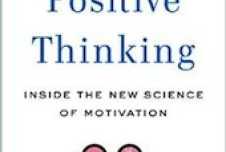Writing a Letter to Your Future Self: Benefits, Guide, and Template

Writing a letter to our future selves is a simple yet profound practice that has the power to transform our lives.
This act of self-expression serves as a conduit to our innermost thoughts, allowing us to capture our hopes, fears, and desires in a tangible form. By embarking on this journey of self-reflection, we open ourselves up to the possibility of profound personal growth and positive change. In this article, we delve into the remarkable impact of writing a letter to your future self and explore how this practice can shape the trajectory of your life.

3 Reasons to Write a Letter to Your Future Self: Benefits
1. reflection and self-awareness.
Writing a letter to your future self provides a unique opportunity for reflection and self-awareness. By capturing your current thoughts, emotions, and experiences, you gain insight into who you are at this moment in time. This act of self-reflection allows you to understand your desires, fears, and motivations, enabling you to navigate your life with greater clarity and purpose.
2. Goal Setting and Intentions
One of the remarkable benefits of writing a letter to your future self is the ability to set clear goals and intentions. As you pen your thoughts, dreams, and aspirations, you articulate your vision for the future. This goal-setting process helps you identify what truly matters to you and creates a roadmap for achieving your desired outcomes. The act of writing down your goals significantly increases your commitment to them, making you more likely to take the necessary steps to turn them into reality.
3. Personal Growth and Transformation
Revisiting the letter to your future self allows you to witness your personal growth and transformation over time. Months or even years later, as you open the letter, you gain a fresh perspective on your past self. You can celebrate the progress you've made, acknowledge the challenges you've overcome, and recognize the person you've become. This powerful reminder of your resilience and personal evolution serves as motivation to continue growing and striving toward your dreams.

How to Write a Letter to Your Future Self
Choose a meaningful timeframe.
Select a timeframe for your letter that aligns with your goals. You may opt for a year, five years, or even a decade into the future. Consider both long-term and short-term perspectives to capture different aspects of your life journey.
Find a Quiet and Inspiring Environment
Create a calm and distraction-free space for writing your letter. Find a place that inspires you and allows your thoughts to flow freely. Consider incorporating elements such as soothing music, scented candles, or natural surroundings to enhance your creativity and introspection.
Reflect on Your Current State
Take the time to reflect on your current thoughts, feelings, and experiences. Explore your strengths, weaknesses, and areas for growth. Use this opportunity to gain clarity about what you want to achieve and the person you want to become.
Set Clear Goals and Intentions
Define specific goals and aspirations in your letter. Be clear about what you want to accomplish and the steps you plan to take to achieve them. Write down your intentions with conviction, and visualize the future you desire.
Express Your Emotions and Dreams
Let your emotions flow onto the paper. Be authentic and vulnerable as you share your hopes, fears, and dreams. Use this letter as a safe space to express yourself fully and honestly.
In the TED video below, Meg Jay shares the essential questions to ask your future self thus enabling your present and future to align so you can start achieving your goals.
Use the ‘GROW’ Template for Writing To Your Future Self
G - Gratitude and Reflection
R - Realizations and Lessons Learned
O - Outlook and Aspirations
W - Wishes and Dreams
Now let's break down each step of the acronym:
G - Gratitude and Reflection:
Express gratitude for the experiences, people, and opportunities that have shaped your life. Reflect on the positive aspects and milestones you have achieved. Acknowledge the blessings and lessons you have received along the way.
R - Realizations and Lessons Learned:
Share the realizations you have had about yourself, others, and the world around you. Reflect on the lessons you have learned from various experiences and challenges. Discuss how these insights have impacted your growth and understanding.
O - Outlook and Aspirations:
Describe your current outlook on life and the future. Share your aspirations and goals for personal and professional development. Discuss the vision you have for yourself and the steps you plan to take to achieve it.
W - Wishes and Dreams:
Articulate your wishes and dreams for the future. Share the things you hope to experience, the places you want to visit, or the achievements you aspire to. Express your deepest desires and the possibilities you envision for yourself.
By following the "GROW" acronym, you can structure your letter to your future self, covering gratitude and reflection, realizations and lessons learned, outlook and aspirations, as well as wishes and dreams. This framework allows you to reflect on your journey, express your aspirations, and inspire your future self.
Revisiting Your Letter
Timing and frequency.
Decide when and how often you will open the letter to your future self. Give yourself enough time to grow and experience life before revisiting it. Some choose to open it on a specific date or milestone, while others prefer to keep it sealed for several years.
Reflection and Assessment
As you read your letter, reflect on the goals and intentions you set. Assess your progress, achievements, and the lessons you have learned along the way. Celebrate your successes and use any setbacks as opportunities for growth and course correction.
Adjusting and Realigning
Based on your newfound insights, make adjustments and realign your path as needed. Goals may change, and priorities may shift over time. Use the letter as a guide to navigate your journey and stay connected to your authentic self.
Writing a letter to your future self is a powerful practice that invites self-reflection, goal-setting, and personal growth. It allows you to capture the essence of who you are today and provides a glimpse into the person you aspire to become. Embrace this transformative journey of self-discovery, and let the act of writing guide you toward a future filled with purpose, fulfillment, and growth. So take some time to sit down and put pen to paper, or fingers to keyboard, and send a message to the person you hope to become.
Related Posts

Get clarity and peace of mind, wherever you are.

QR Code opens app on your phone.

- AI - Powered Journal
- Share a Prompt
- Knowledge Base
- Join Our Beta
- Nominate a Guide
- Self Reflection 101
- Gratitude Journaling
- Benefits of Journaling
- Journaling with a Coach and Therapist
- Shadow Work Journal
- Diary Vs Journal
- Journal Prompts for Anxiety and Depression
- Journal Prompts for Health and Wellness
- Journal Prompts for Creativity
- Journal Prompts for Personal Growth
- Write to Your Future Self
- Decision Journal
- Questions for Transitions
- Journal Questions for Relationships
- Journal Prompts for Confidence
Greater Good Science Center • Magazine • In Action • In Education
How Thinking About the Future Makes Life More Meaningful
Mindfulness is all the rage these days, and for good reason. Focusing on the moment can improve our well-being , foster compassion , and help our relationships . What about going beyond the present moment? Yes, thinking about the future can trigger anxiety—but a growing body of research suggests that it can also make our lives more meaningful.
Humans aren’t alone in having some ability to consider the future, a process that scientists call “prospection.” After all, your dog gets excited when they see you holding a leash because they anticipate a walk is imminent; your cat may show similar excitement at the sound of a can being opened. There’s even evidence that some animals—like bonobos and ravens —can choose and save tools that they plan to use in the future.
But prospection’s unique benefits to humans extend beyond that of other animals. Not only do we fantasize about our next vacation or decide whether it would be better to take the stairs or the elevator, but our prospection can cast far into the future: We might save for our children’s education or plan for our retirement decades from now. We can make predictions about our own futures based on what we’ve learned about other people’s experiences and even from characters in books and movies. And we can consider multiple directions our futures might take.

It is this remarkable ability to simulate our possible futures that makes prospection special. Just like gold prospecting may literally make you rich, studies suggest that prospecting about your future can enrich your life in at least four ways.
1. Helps us make more prudent decisions
Perhaps one of the most fundamental and important functions of prospection is that it helps us decide how to act: Thinking about what the future likely holds helps us decide what course to take in the here-and-now. Several studies have examined how thinking about the future shapes our decision-making.
Researchers have been particularly interested in the psychology that drives our process of deciding between receiving something now versus receiving something of greater value later. In general, people tend to choose smaller but more immediate rewards over larger rewards that they have to wait for, a phenomenon known as “delay discounting.”
But they don’t always choose short-term rewards over long-run gains. For instance, studies have shown that present-day connection to a possible future event can counteract delay discounting. In one study from the United Kingdom, participants were told either to vividly imagine spending 35 pounds at a pub 180 days from now or to simply estimate what they thought could be purchased for 35 pounds. Participants in the former condition showed an increased willingness to wait for a larger future reward than the participants in the latter condition. In other words, visualizing a specific possible future counteracted the effects of delay discounting.
Another study showed that participants who felt closer to their future selves were more willing to wait for a larger reward than those who anticipated changing; the same was true when they were asked to make decisions on behalf of a fictional character who they knew would go through a life-changing event (like a religious conversion or returning home from war).
While interesting in its own right, this research could have important personal ramifications. If people could be made to feel a more immediate connection to their eventual retirement (and consequent drop in income), they may be more motivated to make prudent decisions.
In fact, one experiment found that manipulating how people think about the time until their retirement—in days rather than years—caused them to plan to start saving for retirement sooner, because the shift in time perspective made the participants feel more connected to their future selves. A 2014 study found that viewing realistic computer-generated images of what they may look like in the future decreased their discounting of future rewards and led them to contribute more to a hypothetical retirement account.
2. Motivates us to achieve our goals (if we do it right)
Prospection has another important application: It motivates us to achieve our goals. But the relationship here is not a simple one. Work by psychologist Gabriele Oettingen and colleagues shows that whether thinking about the future helps us actually reach our goals depends on how we think about the future.
In fact, research has found that positive thinking about our future can backfire . The more people positively fantasize about successfully reaching their goals, the less effort they actually put into realizing them. For example, in one study , the people who fantasized more about successfully losing weight actually lost less weight. Another study found that students who fantasized about their transition into a professional career were less successful in their job search and students who dreamed more about their crush were less likely to start a relationship with their crushee.
Importantly, both of these studies found the opposite effect for having positive expectations (“judging a desired future as likely”). People who expected to lose weight were more likely to actually lose weight; students who expected they would find a job were more likely to actually land one; and students who expected to enter a relationship with their crush were more likely to actually do so.
It makes sense that having positive expectations—optimism, essentially—could increase our ability to achieve our goals, but why might fantasizing about the future actually decrease the chance of achieving what we want? Because, write Oettingen and Klaus Michel Reininger, positive fantasies “lead people to mentally enjoy the desired future in the here and now, and thus curb investment and future success.”
But often our goals come from our fantasies. We want to excel at work, find Mr. or Mrs. Right, or run a marathon. How do we turn these fantasies into behaviors that can help us reach our goals? Research suggests that while optimism is important, it is also helpful to draw a contrast between our fantasies and our current reality, which allows us to see barriers that must be overcome.
For example, one study asked students to mentally contrast their positive fantasies about benefiting from a vocational training program with aspects of the program that could impede their progress. This reflection caused students who expected to do well in the program to commit themselves more, and those who expected to do poorly to commit themselves less—again pointing to the importance of optimistic expectations to success. But the mental contrasting was also key: Positive expectations did not increase commitment in participants who were not assigned to compare their present situation with their future desires.
Results from a later study suggest that the effectiveness of mental contrasting is due to “energization”—meaning that, when people have high expectations for succeeding at something, considering what might impede their goals gives them energy to try to overcome those barriers. In other words, it helps to stress yourself out a little bit.
Mental contrasting, particularly when used in conjunction with “implementation intentions”—making plans to help move past potential barriers—has been shown to help people reach their goals. To describe this process, Oettingen and colleagues use the acronym WOOP : Wish, Outcome, Obstacle, Plan. In studies, WOOP-type interventions have helped people break a bad snacking habit , get more exercise , and improve academic performance .
Thus, research suggests that thinking about the future can motivate us to take the steps necessary to reach our goals—but only if we take obstacles into account.
3. Improves psychological well-being
Besides helping us make decisions and reach our goals, there is evidence that prospection may improve psychological health more generally. It might even help people who are struggling with depression and those recovering from trauma.
Indeed, some researchers pose a link between poor prospection and certain psychological disorders such as depression.
“We see faulty prospection as a core underlying process that drives depression,” write psychologists Martin Seligman and Anne Marie Roepke in the book Homo Prospectus . In particular, they note that people with depression imagine possible futures that are more negative than people without depression. Moreover, people with depression tend to overestimate risk and to have more pessimistic beliefs about the future.
More on Goal-Setting
Explore how to get better at achieving your goals .
Discover the four stages of change .
Find out how to set up the right environment for changing your habits .
How to choose goals that make you come alive .
That might be why research suggests that targeting negative beliefs about the future can be helpful. Some techniques used in cognitive behavioral therapy, for example, involve correcting how people think about the future, and some studies have shown that cognitive behavioral therapy can improve prospection . There is a 10-week program called “Future Directed Therapy” that induces participants to spend less time dwelling on the past or on current struggles. Instead, they are asked to spend more time thinking about what they want from the future, while developing skills to reach those future goals. A nonrandomized pilot study found that patients with major depressive disorder who completed this intervention showed significant improvements in depression, anxiety, and quality of life compared to patients who completed standard cognitive behavioral therapy.
For people recovering from trauma, a 2018 study suggests that writing optimistically about the future—an intervention called prospective writing—might encourage post-traumatic growth (that is, positive psychological growth following a traumatic life event). In this study, adults who had recently experienced trauma were randomly assigned to a prospective writing intervention group, a factual writing control group, or a no-writing control. Throughout the study, those in the prospective writing group showed greater improvement in surveys measuring aspects of post-traumatic growth, including relationship quality, meaning in life, life satisfaction, gratitude, and religiosity-spirituality. The other two groups did not show the same progress.
There’s another technique that may help anyone improve their psychological health: “anticipatory savoring.” Taking time to simulate and enjoy a positive experience in advance—whether it be an upcoming meal, visit with friends, or vacation—can allow you to derive benefits for the experience twice. One 2018 study found that taking the opportunity to savor an upcoming experience actually heightened people’s enjoyment both during the unfolding of the experience and when remembering it later.
One way to engage in anticipatory savoring, suggested by Roepke and Seligman in a recent review article , is to modify the “three good things” gratitude exercise. Instead of writing three good things that happened today, you can write three good things you anticipate happening tomorrow and what you can do to make it more likely that those things actually happen. For people who are struggling, they suggest also writing down three methods that could be used to mitigate disappointment if the good things do not actually happen. These could include coping strategies (exercise, reaching out to a friend, etc.) or alternative strategies to making the good thing happen (e.g., if a friend cancelled lunch, you could suggest lunch next week).
4. Makes us more kind and generous
How we think about the future doesn’t just influence our own lives. It can also influence how we treat other people.
In particular, picturing yourself helping someone in the future may make you more likely to actually do so. For instance, a 2018 study found that participants reported being more willing to help other people who needed help (such as a person who was locked out of their house or who lost their dog) if they had previously been asked to imagine helping a person in a similar scenario. People who were asked to imagine the helping scenario more vividly—by picturing the event occurring in a familiar location—were even more willing to help. One experiment even found that people who imagined helping actually gave more money to people in need when given the opportunity.
Another study found that when people think more broadly about the future consequences that could come from helping others, they might feel inspired to behave in more prosocial ways. In one experiment, researchers asked people who had volunteered for Hurricane Katrina relief efforts to imagine the meaning and consequences of their trip—or to think concretely about how they would be helping. Those who imagined the consequences of helping predicted that they would have a more rewarding trip than those who thought concretely about their actions. A second experiment replicated this finding: People predicted that giving money to someone they had never met would be more rewarding when they were asked to think about the more abstract meaning and consequences of their actions (e.g., how this decision fit in with their life’s past and future experience) than when they were asked to consider a more concrete perspective.
Could this abstract-versus-concrete effect have real-world consequences? The researchers think so:
We believe that our results suggest an intervention that could be used to prompt and sustain prosocial behavior. To the extent that people avoid or cease prosocial actions because of concrete costs, inviting people to construe those actions abstractly could help them persist at prosocial actions that have enduring personal and social benefits.
While there’s a lot left for researchers to discover about prospection, you don’t need to wait for their published studies. You can try your own experiments right now, to see if prospection helps you to live a more generous, happier, and more meaningful life.
About the Author

Summer Allen
Summer Allen, Ph.D. , is a Research/Writing Fellow with the Greater Good Science Center. A graduate of Carleton College and Brown University, Summer now writes for a variety of publications including weekly blog posts for the American Association for the Advancement of Science. She is also very active on twitter: follow her , or just reach out and say hello!
You May Also Enjoy

Three Emotions That Can Help You Succeed at Your Goals

Can Mindfulness Improve Decision Making?

How to Use Your Unconscious Mind to Achieve Your Goals

Can Positive Thinking Really Make Dreams Come True?

How Habits Can Get in the Way of Your Goals

Optimism for Me, Pessimism for We
- Search All Scholarships
- Exclusive Scholarships
- Easy Scholarships to Apply For
- No Essay Scholarships
- Scholarships for HS Juniors
- Scholarships for HS Seniors
- Scholarships for College Students
- Scholarships for Grad Students
- Scholarships for Women
- Scholarships for Black Students
- Scholarships
- Student Loans
- College Admissions
- Financial Aid
- Scholarship Winners
- Scholarship Providers
Student-centric advice and objective recommendations
Higher education has never been more confusing or expensive. Our goal is to help you navigate the very big decisions related to higher ed with objective information and expert advice. Each piece of content on the site is original, based on extensive research, and reviewed by multiple editors, including a subject matter expert. This ensures that all of our content is up-to-date, useful, accurate, and thorough.
Our reviews and recommendations are based on extensive research, testing, and feedback. We may receive commission from links on our website, but that doesn’t affect our editors’ opinions. Our marketing partners don’t review, approve or endorse our editorial content. It’s accurate to the best of our knowledge when posted. You can find a complete list of our partners here .
Examples of Scholarship Essays for the “Career Goals” Question

Emily Wong is a writer at Scholarships360. She’s worked as a social media manager and a content writer at several different startups, where she covered various topics including business, tech, job recruitment, and education. Emily grew up and went to school in the Chicago suburbs, where she studied economics and journalism at Northwestern University.
Learn about our editorial policies

Maria Geiger is Director of Content at Scholarships360. She is a former online educational technology instructor and adjunct writing instructor. In addition to education reform, Maria’s interests include viewpoint diversity, blended/flipped learning, digital communication, and integrating media/web tools into the curriculum to better facilitate student engagement. Maria earned both a B.A. and an M.A. in English Literature from Monmouth University, an M. Ed. in Education from Monmouth University, and a Virtual Online Teaching Certificate (VOLT) from the University of Pennsylvania.

Writing an essay is often the trickiest part of the scholarship application, not to mention the most time-consuming. However, the essay section also allows room for creativity and individuality. If you can communicate effectively, you can use the essay portion to stand out from the crowd. Let’s go over some tips for writing, as well as a couple of scholarship essay examples about career goals.
How to write a scholarship essay
At this point, you’ve probably gained plenty of experience writing papers for school. However, it may still take a couple of tries to nail the scholarship essay. Since scholarship teams often have to get through a lot of applications, it’s important to stand out while staying concise. Here are some simple guidelines for writing scholarship essays.
See also: How to write a winning scholarship essay (with examples!)
Take five minutes to brainstorm
Before you even start your essay, take some time to gather your thoughts. Think about what you’ll want the paper to focus on. Why did you choose to pursue your career path in the first place? Where do you want to be in five years? How would this scholarship help you further your studies and work toward your goals?
Once you’ve jotted down a few ideas, choose one or two to center your essay on. Identifying the focus of your paper, it’ll make it easier to keep your thoughts organized. In turn, it’ll make it easier for the reader to follow.
Related : How to start a scholarship essay (with examples!)
Stay within the word limit
Unlike the four-page essays that you may have written in English class, scholarship essays are often only a paragraph or two. In order to respect the selection committee’s time, be wary of going too far about the specified word count. A general rule of thumb is to stay within 20 words above or below the limit. That may entail a few rounds of edits to get the wording just right.
Stay positive!
Feel free to use part of your essay to talk about your life’s challenges. After all, the selection committee often wants to give the award to a candidate who needs it. However, make sure your anecdote doesn’t devolve into a sob story. If you’re going to bring up hardships you’ve endured, try to balance it by talking about how you’ve overcome them. By demonstrating resilience, you can show readers how you would use the scholarship to succeed in your current situation.
Leave time to proofread
Especially for a short scholarship essay, proofreading can take as little as 5-10 minutes. Still, it can be tempting to just hit “submit” after your first draft. However, being too impulsive can leave your essay riddled with typos and grammatical errors.
Try to avoid unnecessary mistakes by finishing your draft at least 24 hours before the scholarship deadline. That way, you can proofread it with fresh eyes before you submit it.
If you’re struggling to close out your essay, read how to end a scholarship essay in five steps .
Apply to these scholarships due soon

$10,000 “No Essay” Scholarship

$2,000 Sallie Mae Scholarship

$40,000 Build a College List Scholarship

Niche $25,000 “No Essay” Scholarship

$25k “Be Bold” No-Essay Scholarship

$10,000 CollegeXpress Scholarship

$1,000 Appily Easy College Money Scholarship

$5,000 Christian Connector Scholarship

$2,000 No Essay CollegeVine Scholarship
How to write a 100-word “career goals” essay.
When writing a 100-word essay, you’ll have to choose your content carefully. Since space is limited, you’ll want to identify the most important details to include beforehand.
First and foremost, make sure to clearly communicate your current pursuits. Talk about your academic and extracurricular activities related to your career goals. Additionally, it’s important to be specific about what you plan to do in the future. Then, if you have extra room, you can talk about how the scholarship will help you reach your goals.
My name is Alison MacBride, and I’m a sophomore at the University of Illinois. I’m currently pursuing a major in Journalism with a minor in Natural Resource Conservation. After completing my program, I plan to combine my areas of interest to become an environmental journalist.
During high school, I volunteered at an eco-conscious farm, where I learned about how our actions affect the earth. Since then, I’ve been set on raising awareness for the environment. This scholarship would go a long way in helping me finish my degree with the skills I need to investigate and report about critical issues.
Word count: 100
How to write a 250-word “career goals” essay
For the 250-word essay, you can go into more detail. Give the readers some context by talking about how you first got interested in your chosen career. Storytelling can be especially effective in engaging your audience. Try to capture their attention by choosing one or two concrete examples and relaying them vividly.
Additionally, you can spend more time talking about the scholarship and how it’ll make a difference in your studies. Go into more detail about how and why you need the award, but remember to keep it positive! For more help, check out how to write a 250 word essay .
I first decided that I wanted to pursue a career in environmentalism in early high school. The summer after my freshman year, I joined a volunteer program at an eco-conscious farm in my community. In addition to helping out with the operations, I learned about current environmental issues related to farming and other consumer industries.
After learning about the agricultural industry’s impact on the planet, I was inspired to make a difference. The next year, I started a monthly earth magazine at my high school in which we broke down environmental issues and offered tips on how to be more eco-friendly. When I started college, I founded an on-campus publication with the same mission.
In recent years, I’ve been troubled to see how some media outlets downplay the gravity of issues like climate change and deforestation. I’ve admired reporters who publish trustworthy and comprehensible information about environmental issues, and I aim to follow in their footsteps.
When I entered college, I was initially concerned that I wouldn’t have enough money to finish my degree. Fortunately, I’ve been able to cover most of my tuition using merit scholarships and paychecks from my part-time job on campus. Receiving this scholarship would allow me more time to focus on acing my classes and pursuing environmental advocacy work on campus.
Word count: 261
Final thoughts
Planning is essential in making your “career goals” essay clear and concise. Hopefully, these scholarship essay examples about career goals can be your guide to writing a scholarship-winning essay. Good luck!
Additional resources
Maybe you need to write a longer scholarship essay? We can help with our writing a 500 word essay guide ! Be prepared and learn how to write essays about yourself and how to craft an impressive personal statement . Learn the differences between a personal statement and a statement of purpose as the terms might come up on college websites. If you haven’t decided on a college already, check out our guide on how to choose a college . No matter where you are in your educational journey, make sure that you apply for all the scholarships you qualify for!
Start your scholarship search
- Vetted scholarships custom-matched to your profile
- Access exclusive scholarships only available to Scholarships360 members

Scholarships360 Recommended

Top 64 No Essay Scholarships in May 2024

Top 260 Scholarships for High School Juniors in May 2024

$20k+ in Exclusive Scholarships from Scholarships360
Trending now.

Top 55 Easy Scholarships✅ to Apply For in May 2024

Top 1,328 Scholarships for High School Seniors in May 2024

Top Scholarships for Current College Students in May 2024
3 reasons to join scholarships360.
- Automatic entry to our $10,000 No-Essay Scholarship
- Personalized matching to thousands of vetted scholarships
- Quick apply for scholarships exclusive to our platform
By the way...Scholarships360 is 100% free!
Calculate for all schools
Your chance of acceptance, your chancing factors, extracurriculars, how do i write a college essay about my future goals.
I have some pretty clear goals for my future, and I think writing about them in my college essay might help me stand out. How can I approach this topic in a way that's engaging and doesn't sound like I'm just listing my ambitions? Thanks for any suggestions!
Hey there! Writing about your future goals is a great idea for a college essay, and it can definitely help you stand out. The key is to tell a story that highlights your goals while also showcasing your personality and experiences.
Start by reflecting on your past experiences and achievements that have led you to these goals. You could talk about a specific moment or event that inspired your ambition, and then explain how it has driven you ever since. This helps to show your passion and dedication towards your goals.
Next, focus on your present efforts to work towards these goals. You could mention any relevant extracurricular activities, internships, or projects you've been involved in that align with your future aspirations. This demonstrates your commitment and hard work.
Finally, discuss your future goals in a way that ties everything together and shows the admissions committee how you plan to make a positive impact in the world. Remember to be authentic and genuine in your writing, and don't be afraid to show some vulnerability. Good luck with your essay!
About CollegeVine’s Expert FAQ
CollegeVine’s Q&A seeks to offer informed perspectives on commonly asked admissions questions. Every answer is refined and validated by our team of admissions experts to ensure it resonates with trusted knowledge in the field.
Time Travelled — 12 months
Feb 05, 2009 Feb 05, 2010
Peaceful right?
Sign in to FutureMe
or use your email address
Don't know your password? Sign in with an email link instead .
By signing in to FutureMe you agree to the Terms of use .
New around here?
Create an account
You will receive a confirmation email
Already have an account?
FutureMe uses cookies.
Learn how we use cookies to improve your experience by reviewing our Terms of Service
Share this FutureMe letter
Copy the link to your clipboard:
Or share directly via social media:
Why is this inappropriate?
Future Plans Essay
500+ words future plans essay.
Everyone has dreams and plans for the future. In our childhood, we dream of becoming a doctor, an engineer, an astronaut, etc. It’s we who really know best what we like. We know what we want in our life. Future plans can be different for different students. Below is just a sample essay that students can use for reference. This future plan essay will help students to write an effective essay on their future plans. They can also get the list of CBSE Essays on different topics for their practice. It will boost their score in English exams and also help them to participate in various essay writing competitions.
My Future Plan
I often wonder about my future as I am about to finish my schooling. There are a number of questions in my mind, and the one which mostly revolves around my mind is which profession I should choose. It is difficult for me to make a choice because I am aware that the decision will impact my entire life. I always dream of a profession that I can enjoy, that brings a challenge to me and satisfies me. I believe in a job that is like a hobby for me. I just don’t want to do the job to make money. Instead, I want to love my profession and duty. Also, my job should be such that I contribute to society and help people.
From my childhood, I always wanted to treat people and cure their diseases. So, to fulfil this dream of becoming a doctor, I have some future plans. Firstly, I have to complete my secondary schooling. Then, I have to complete my higher secondary education, and thereafter, I would like to study in a prestigious medical college and later become a doctor.
Studying medical science takes a long time. It is a difficult course and requires a tremendous amount of hard work and patience. I hope that I will be able to meet all the challenges and complete my studies well. After the completion of my studies, I would like to work in a hospital, so I can make my dream come true.
During my studies, I will have to work on different biology projects. The experience of working on these projects will give me insight into science and help me in becoming a good doctor. In addition, I also have to develop patience and diligence. During the summer vacations, I will have to work under a good doctor as an assistant nurse. It will help me to get real-life experience of how doctors work. Moreover, the learning will help me to deal with patients, nurses, doctors and staff of the hospital. It will be the best kickstart for my career as a future medical student.
As for now, I am focusing on my studies and looking forward to completing my schooling. I do have a future plan for my family. But, before that, I would like to travel the world. I want to visit different countries like America, Finland and London and travel to all the continents. After finishing my education and going on a world trip, I would like to settle down in my life. So, I will get married and would love to have a small family. I would like to have a small home in a natural and calm place where I can live and enjoy myself with my family.
Students must have found “Future Plans Essay” useful for improving their essay writing skills. Visit BYJU’S website to get the latest updates and study material on CBSE/ICSE/State Board/Competitive Exams at BYJU’S.
Leave a Comment Cancel reply
Your Mobile number and Email id will not be published. Required fields are marked *
Request OTP on Voice Call
Post My Comment
- Share Share
Register with BYJU'S & Download Free PDFs
Register with byju's & watch live videos.

Counselling
- Applying For Scholarships
Essay: How Will This Scholarship Help You Achieve Your Goals? (With Example) – 2023
Jennifer Finetti May 23, 2023

Get our best scholarship practices, insights & tips delivered to your inbox
Thank you for subscribing!
Many scholarship applicants often have to write a “How will this scholarship help you achieve your goals” essay. This gives the scholarship committee an understanding of how the scholarship will help students pursue their goals.
Needless to say, the essay is very important for the scholarship application. This is where students can show off their personality. Students should make sure to write a unique composition which answers the essay question.
Think About Your Goals
It can be challenging to think about what your goals are after college. This is especially true if you haven’t decided on a major and have no idea what you want to study.
If you find yourself struggling to determine what your career goals are, try brainstorming before you start writing. Think of what your short-term and long-term goals are and write them down. What skills do you need to achieve these goals?
The fastest path to earning scholarships
Simplify and focus your application process with the one-stop platform for vetted scholarships.
Writing Tips – Getting Started
When starting to write your essay , make sure you open with a catchy introduction. This can be a question, an anecdote or a personal story. You want to grab your reader’s interest right away. Start with something unique, rather than using a generic sentence that any other student can use.
Explain the Inspiration Behind Your Goals
You’ll then want to explain the inspiration behind your goals. What led you to want to pursue these goals? What experiences have you had in life which have influenced you and your dreams?
Discuss Your Goals
After discussing your past experiences, talk about your education and career goals . Do you have a major? How will it help you achieve your goals?
Do you have long-term goals you can talk about? The scholarship provider doesn’t expect you to have long-term goals set in stone so don’t worry if you don’t. Instead, you can write about how you wish to impact others.
Make a Creative Conclusion
In your conclusion paragraph, you should summarize the major points in your essay. Then finish with a closing thought. You should try to make it creative and unique. You want to leave a lasting impression on the reader.
After you finish writing your essay, make sure you proofread it several times. The last thing you’d want to do is turn in an essay with grammar mistakes.
Scholarship Goals Essay Example
It was November, 2016, a few days before Thanksgiving. My class took a field trip to a soup kitchen to serve lunch. I poured piping hot soup into bowls while people started to fill the room. It was a great way to warm up on the frigid November day. Their eyes seemed empty and sad. “Happy Thanksgiving” we said to one another, as our eyes locked.
A few days later, as I sat surrounded by family, turkey, gravy and pumpkin pie, I couldn’t help but feel like something wasn’t right. Why was I so fortunate to have access to all this food? I thought of the people from the soup kitchen and wondered where they were. I knew right then and there that my purpose in life was to help people.
I returned to the soup kitchen as a volunteer a week later, and a week after that.
I envisioned the realm of possibilities for these people. “I would connect him with a rehab program, her with daycare for her baby so she could find work,” I thought to myself while volunteering. I have dreams of one day being able to help people make changes in their lives.
For this reason, I will be starting my undergraduate degree in social work at Boston University in the fall. I am certain that my studies will instill within me the skills and knowledge I need to pursue a career as a social worker. I hope to be able to help those who are less privileged find hope in their lives.
This scholarship will help me achieve my educational and career goals. I have been working hard to save up for college, but with the exorbitant costs of tuition, my part-time jobs haven’t been enough. I am planning to work during my undergraduate degree, but I do wish to focus a lot of my time on my studies. This scholarship will help by lowering the costs of college and the amount of hours I’ll need to work throughout my studies. This way, I’ll be able to continue with my academic achievements. It will also give me time to find an internship. I am hoping to find an internship at a homeless shelter in the Boston area.
It has been two and a half years since I first walked into that soup kitchen. That day without a doubt has changed the course of my life. My experiences there, talking with people and hearing their stories, have instilled within me a passion to help people make positive changes in their lives. This scholarship will allow me to pursue the education I need to achieve my goals.
- Scholarship Essay

Jennifer Finetti
As a parent who recently helped her own kids embark on their college journeys, Jennifer approaches the transition from high school to college from a unique perspective. She truly enjoys engaging with students – helping them to build the confidence, knowledge, and insight needed to pursue their educational and career goals, while also empowering them with the strategies and skills needed to access scholarships and financial aid that can help limit college costs. She understands the importance of ensuring access to the edtech tools and resources that can make this process easier and more equitable - this drive to support underserved populations is what drew her to ScholarshipOwl. Jennifer has coached students from around the world, as well as in-person with local students in her own community. Her areas of focus include career exploration, major selection, college search and selection, college application assistance, financial aid and scholarship consultation, essay review and feedback, and more. She works with students who are at the top of their class, as well as those who are struggling. She firmly believes that all students, regardless of their circumstances, can succeed if they stay focused and work hard in school. Jennifer earned her MA in Counseling Psychology from National University, and her BA in Psychology from University of California, Santa Cruz.
Related Stories View All

The A-Z on How to Win a Walmart Scholarship

Fear of Applying for Scholarships: When Money Doesn’t Seem Worth the Effort, What to Do About It?

Are Grants Taxable Income?
Get started with scholarshipowl.
Simplify and focus your application process with the one-stop platform for vetted scholarships
Home / Essay Samples / Life / Dream / My Dreams for the Future
My Dreams for the Future
- Category: Life
- Topic: Dream , My Future
Pages: 1 (673 words)
- Downloads: -->
Academic and Professional Achievements
Personal growth and well-being, fulfilling relationships, contributing to society, continual learning and exploration.
--> ⚠️ Remember: This essay was written and uploaded by an--> click here.
Found a great essay sample but want a unique one?
are ready to help you with your essay
You won’t be charged yet!
Humanity Essays
Gratitude Essays
Hope Essays
Adversity Essays
Kindness Essays
Related Essays
We are glad that you like it, but you cannot copy from our website. Just insert your email and this sample will be sent to you.
By clicking “Send”, you agree to our Terms of service and Privacy statement . We will occasionally send you account related emails.
Your essay sample has been sent.
In fact, there is a way to get an original essay! Turn to our writers and order a plagiarism-free paper.
samplius.com uses cookies to offer you the best service possible.By continuing we’ll assume you board with our cookie policy .--> -->